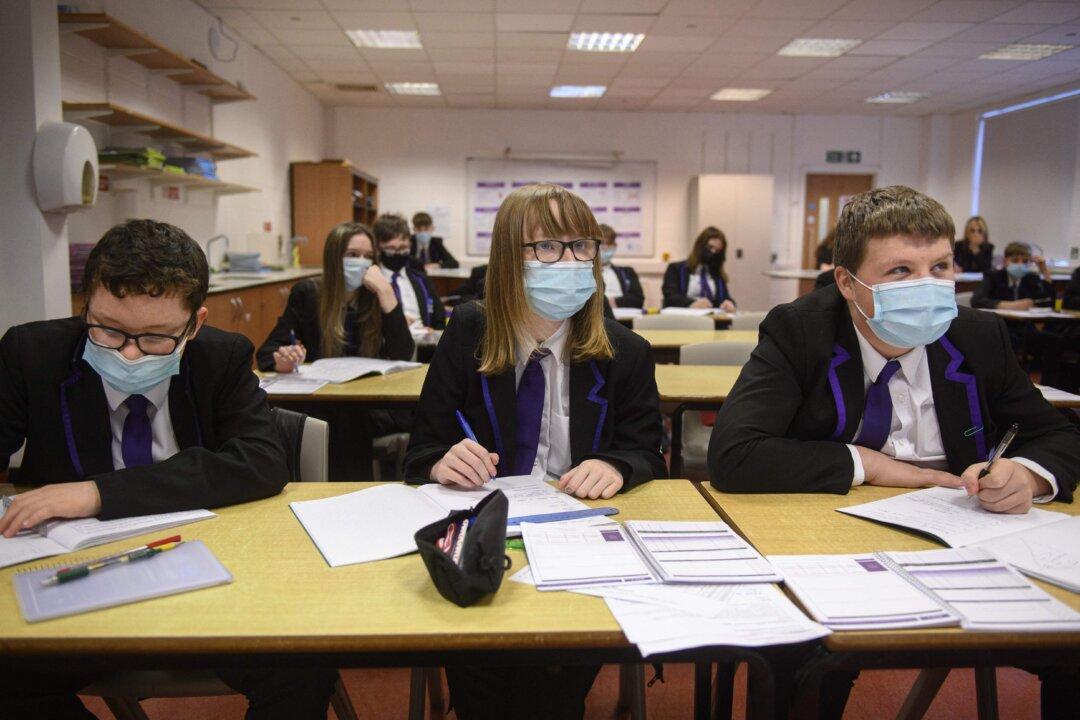Masking children was a “political decision” despite a risk of harm and limited benefits, claims the children’s campaign group UsForThem.
Set up in May 2020, UsForThem have campaigned for the UK government to discontinue the use of masks for children and adults in school settings and evidenced the harm of lockdowns on kids.





